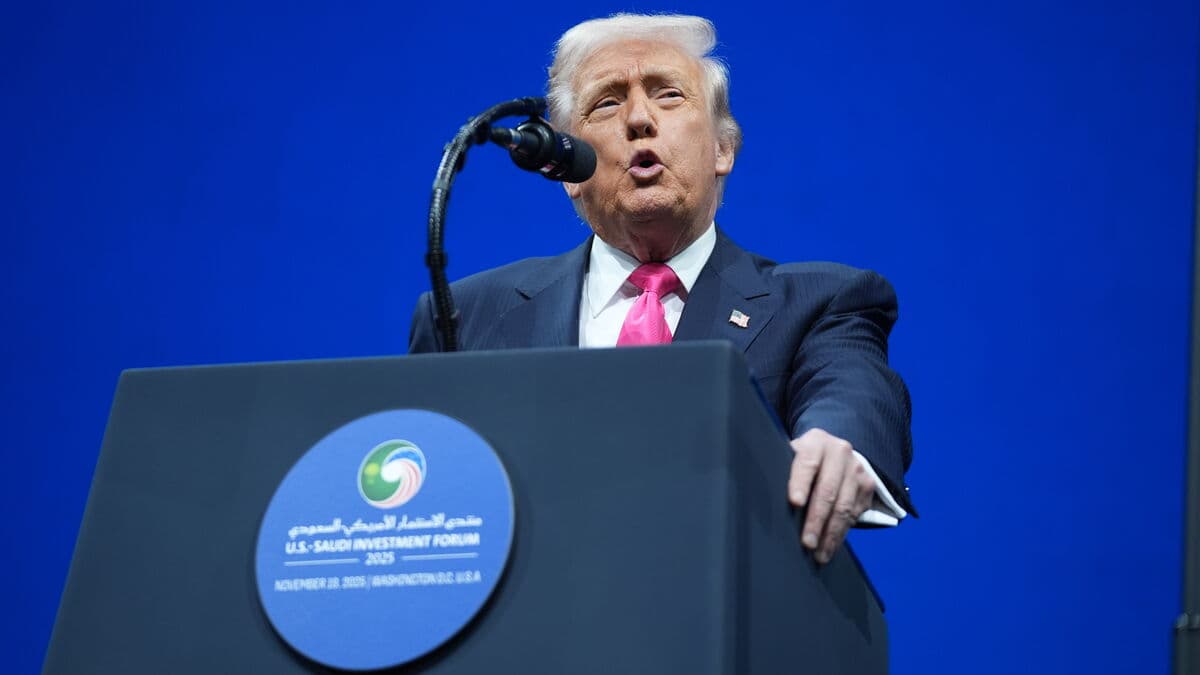Trump writes on social media that he has signed the law that both houses of Congress approved earlier this week. It states that the Justice Department has 30 days to release as many documents as possible from the investigation into the activities and contacts of businessman and sex offender Jeffrey Epstein.
"The Department of Justice, at my direction, has already turned over nearly 50,000 pages of documents to Congress," Trump wrote on his own Truth Social platform.
Some exceptions
It concerns information that federal authorities have collected about Jeffrey Epstein – who was friends with many of the rich and powerful – and his companion Ghislaine Maxwell: everything that has emerged in numerous and lengthy criminal investigations, information about the trips they made and with whom, and all the circumstances surrounding Epstein's death.
“No document may be withheld, delayed or edited due to embarrassment, damage to reputation or political sensitivity” for any public figure or “foreign dignitary,” it says.
Attorney General Pam Bondi has previously said she will release the documents if Trump signs the law. But the wording of the law leaves some loopholes, allowing some to remain secret. In particular, she can withhold information if it is deemed to "impede an ongoing federal investigation or prosecution."
Names of crime victims, medical records, and child pornography or violent material may also be omitted. But the department must account for what has been omitted and why – and within 15 days, report this to Congress in detail.
Turn at the last moment
When Donald Trump returned to the White House, he vehemently opposed the Epstein investigation, with all the names involved, reaching the light of day. He has downplayed its significance and his own involvement.
During the year, however, Congress has weighed increasingly heavily against this, with more and more Republicans supporting the bill and growing pressure even from parts of Trump's more hardline support base.
As recently as last week, Trump invited one of the leading Republican voices on the issue, Rep. Lauren Boebert, to a meeting at the White House to discuss the matter – but Boebert was adamant that the investigation should be released.
When it became clear that Congress would vote to drop the investigation, Donald Trump abruptly reversed course, saying roughly that it was best to get the matter over with so that the government could focus on other things.
Corrected: A previous version stated a number of incorrect grounds for when the Department of Justice can sift through the documents.
An investigation into businessman Jeffrey Epstein began in 2005 after a 14-year-old girl told police she had been molested by him at his home in Palm Beach, Florida. The investigation grew and in 2007 he was indicted in federal court.
After a plea deal with prosecutors, Epstein was sentenced to 18 months in prison for sex trafficking in 2008. He was released after 13 months.
The case received renewed attention in 2018 after a series of articles in the Miami Herald in which several women came forward and accused Epstein of sexual assault during the period 2001 to 2005.
In July 2019, Epstein was arrested at an airport in New Jersey. The new charges against him concerned the abuse of dozens of underage girls between 2002 and 2005. According to the prosecution, Epstein tried to buy the silence of witnesses with millions of dollars. Epstein denies the crime.
On August 10, 2019, Jeffrey Epstein was found dead in his cell in Manhattan's New York City jail. He was taken to a hospital where he was pronounced dead. It is believed he took his own life, but this is disputed.
A prominent plaintiff against Epstein was Virginia Giuffre, who died earlier this year. She claimed that Epstein’s convicted associate Ghislaine Maxwell discovered her at Donald Trump’s Florida spa when she was 17 and hired her as Epstein’s masseuse his “sex slave.” Giuffre also accused Britain’s Prince Andrew of rape, which ended in an out-of-court settlement between the parties.






